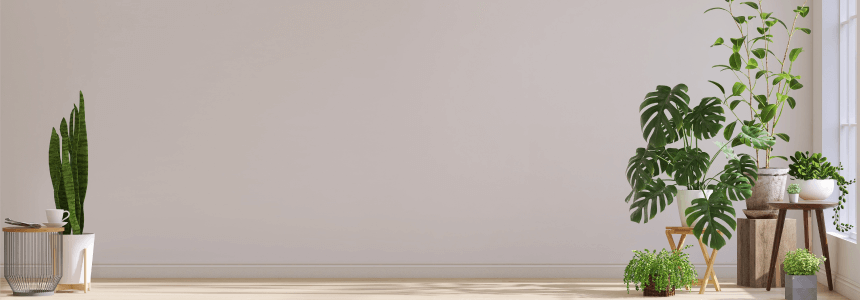
Contemplating coverage?
Subscribe to receive our emails & get
$200 OFF!
Have questions?
Call us: (833) 544-8273


Written By Rachel Cherem
In recent years, indoor air quality has gained more attention. We spend a significant portion of our day in our home and offices, and the air we breathe can greatly affect our health and well-being. Poor indoor air quality has been linked to allergies, respiratory issues, and even long-term health problems.
The good news is that purifying the air at home naturally doesn’t require expensive air purifiers or chemical-laden cleaning products. By using simple, natural methods, you can improve the air quality in your home while also reducing toxins and allergens. Whether you’re dealing with pet dander, dust, or even smoke, there are plenty of easy and effective ways to create a cleaner, fresher living environment.
In this guide, we’ll explore various natural techniques for purifying air in your home, from using houseplants to leveraging the power of essential oils. Let’s dive into how you can refresh the air naturally without relying on harsh chemicals.
One of the most natural and effective ways to purify the air in your home is by bringing in houseplants. Plants not only add a touch of green beauty to your space but also act as natural air filters. They absorb carbon dioxide and release oxygen, helping to freshen the air. Certain plants are particularly effective at removing common indoor pollutants like formaldehyde, benzene, and trichloroethylene.
To maximize their effectiveness, place your plants in areas with good natural light. Be sure to water them regularly but avoid over-watering. Having a few plants in each room can significantly improve air quality.
Another simple way to purify the air in your home is through essential oils. These oils, derived from plants, have natural properties that can purify the air, reduce odors, and even improve your mood. Some essential oils, like eucalyptus, tea tree, and lavender, are especially known for their antimicrobial and purifying qualities.
Tip: Some essential oils, like eucalyptus and peppermint, can also help reduce symptoms of allergies and respiratory issues, making them doubly effective in purifying your indoor air.
Baking soda is a natural and inexpensive solution for eliminating bad odors and absorbing toxins in the air. It works by neutralizing acidic and basic odors, leaving your home smelling fresh and clean.
Tip: Baking soda can also help absorb moisture and prevent mold growth, further improving air quality.
Vinegar is another powerful natural ingredient that can purify the air at home. It can neutralize odors, disinfect surfaces, and even help remove airborne allergens.
Note: Don’t worry about the vinegar smell—it dissipates quickly and leaves the air fresh.
Activated charcoal is an incredibly effective natural purifier for both air and water. It works by trapping toxins, allergens, and pollutants in its porous surface. Activated charcoal can be placed in various locations around your home to absorb bad smells and reduce indoor air contaminants.
While it may seem obvious, proper ventilation is one of the most natural and effective ways to improve indoor air quality. Fresh air helps to dilute pollutants and allergens that can accumulate in closed spaces. Even if you live in a city or have limited access to fresh outdoor air, there are still ways to ventilate your home effectively.
Tip: Avoid opening windows if the outdoor air is polluted or if allergens are high, especially during allergy season.
Lastly, one of the simplest ways to ensure clean air at home is by maintaining your air filters. Dirty air filters can trap dust, pet dander, and other particles, causing them to circulate through your home.
Purifying the air at home doesn’t have to be difficult or expensive. By incorporating natural methods like houseplants, essential oils, baking soda, vinegar, and activated charcoal, you can improve the air quality in your home without the use of harsh chemicals. In addition to creating a healthier environment, these solutions are easy to implement and cost-effective.
If you’re interested in learning more about home maintenance and other ways to keep your air quality healthy, like with an air handler, be sure to check out Liberty Home Guard’s resources for homeowners, and explore our home warranty plans.
Using houseplants, essential oils, baking soda, vinegar, and activated charcoal can naturally reduce toxins, odors, and allergens.
Spider plants, snake plants, peace lilies, and aloe vera are especially good at removing pollutants and releasing oxygen.
Diffusing or spraying essential oils like eucalyptus, tea tree, and lavender can freshen air, reduce bacteria, and alleviate minor allergy symptoms.
Yes. Opening windows, using exhaust fans, and maintaining clean air vents helps circulate fresh air and dilute indoor pollutants.
HVAC filters and air purifier filters should be changed every 1–3 months to trap dust, allergens, and other pollutants effectively.
Stay Ahead of Potential
Home Mishaps!
Subscribe to our Liberty Home Guard Newsletter and gain access to exclusive content that ensures your peace of mind.